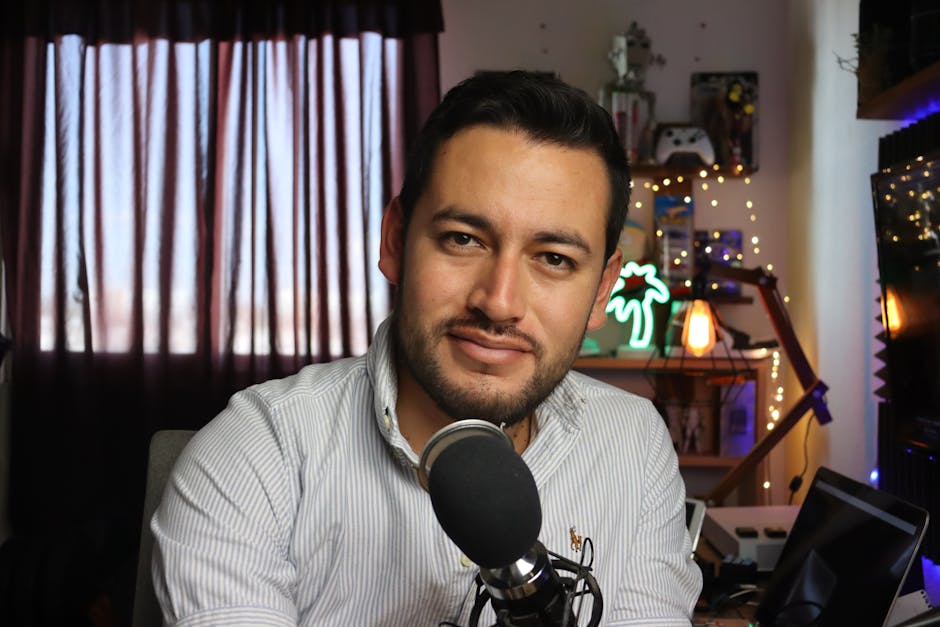5 Monetization Strategies for Podcasters Beyond Traditional Ads.
5 Monetization Strategies for Podcasters Beyond Traditional Ads
The world of podcasting has exploded, creating incredible opportunities for creators to share their voices and build dedicated communities. However, for many, the dream of turning their passion into a sustainable income often hits a roadblock: traditional advertising. While sponsorships and dynamic ad insertions can provide revenue, they often come with limitations – fluctuating CPMs, reliance on download numbers, and a potential disconnect with your audience if not handled authentically. For podcasters truly looking to thrive and build a resilient business, it’s essential to look beyond the conventional ad model. This article will dive deep into five powerful, audience-centric monetization strategies that empower you to generate income, deepen listener relationships, and secure your podcast’s financial future without solely relying on ads.
Cultivating Direct Listener Support: The Power of Community-Driven Funding
One of the most authentic and sustainable ways to monetize your podcast is by inviting your audience to directly support your work. This strategy moves beyond transactional advertising and into a realm of genuine connection, where listeners become patrons who value your content enough to contribute financially. It’s a testament to the community you’ve built and their desire to see your show continue and flourish. Platforms like Patreon, Buy Me a Coffee, and even direct PayPal donations, facilitate this model, allowing you to offer various tiers of support with corresponding perks.
Building a Patronage Model That Resonates
Success with direct listener support hinges on transparency and value. Be clear about why you’re asking for support and how those funds will be used – whether it’s for better equipment, editing services, research, or simply to keep the show running. In return, offer exclusive benefits that make your patrons feel special and integral to your podcast’s journey. This could include:
- Ad-Free Episodes: A clean listening experience for your most loyal fans.
- Bonus Content: Extra episodes, behind-the-scenes glimpses, blooper reels, or extended interviews not available to the general public.
- Early Access: Give patrons a sneak peek at new episodes before they’re officially released.
- Shout-outs: Acknowledging supporters by name on an episode can foster a strong sense of community.
- Exclusive Q&A Sessions: Host live virtual events where patrons can interact directly with you.
The key is to create a sense of belonging and make your supporters feel like they are part of an exclusive club, directly contributing to the content they love. This creates a much more stable and predictable income stream compared to the often volatile nature of traditional advertising.
Unlocking Exclusive Value: Premium Content and Memberships
Beyond simply asking for donations, you can structure a robust revenue stream by offering premium, gated content that listeners explicitly pay for. This isn’t just about charity; it’s about providing elevated value that justifies a subscription fee. Think of it as creating an exclusive club within your podcast community, where members gain access to unique experiences and deeper dives into your niche. This strategy works exceptionally well for podcasts with a highly engaged audience and a specific area of expertise or compelling narrative.
Crafting Desirable Membership Tiers
To make premium content appealing, it must offer something truly distinct from your free offerings. Consider what your most dedicated listeners crave. This might include:
- Exclusive Series: A separate, ongoing podcast series only available to paying members, perhaps exploring topics in more depth or featuring different formats.
- Deep Dive Archives: Access to an extensive library of past bonus content, unreleased episodes, or special interviews.
- Private Community Forums: A dedicated space (e.g., Discord server, private Facebook group) where members can interact with you and each other, fostering a strong sense of belonging and networking.
- Worksheets & Resources: If your podcast is educational or instructional, offer downloadable guides, templates, or checklists that complement your audio content.
- Interactive Sessions: Monthly live Q&As, group coaching calls, or virtual meetups exclusively for members.
Platforms like Memberful, Supercast, or even specific features within podcast hosts like RedCircle, allow you to manage these subscriptions seamlessly. Focus on delivering consistent, high-quality exclusive content to retain subscribers and demonstrate the ongoing value of their membership.
Leveraging Your Influence: Strategic Affiliate Partnerships
While traditional ads often involve reading a script for a product you might not use, affiliate marketing is a more organic and trust-based approach. It involves recommending products or services that you genuinely believe in and use yourself, earning a commission for every sale or lead generated through your unique affiliate link. This strategy leverages the trust you’ve built with your audience, positioning you as a helpful guide rather than just a salesperson.
Identifying Authentic Affiliate Opportunities
The key to successful affiliate marketing in podcasting is authenticity. Your recommendations must feel natural and valuable to your listeners, directly aligning with your podcast’s niche and your audience’s interests. Start by thinking about:
- Products/Services You Already Use: What tools, books, software, or brands do you personally love and integrate into your daily life or podcast production? These are the easiest to recommend genuinely.
- Audience Needs: What problems do your listeners face that a particular product or service could solve? What resources do they often ask about?
- Relevance to Your Niche: A true crime podcast might affiliate with a VPN service, while a cooking podcast could partner with a gourmet ingredient supplier or kitchen gadget brand.
Platforms like Amazon Associates are a common starting point, offering a vast array of products. Beyond that, many software companies, online courses, and niche product brands have their own affiliate programs. Always disclose your affiliate relationships transparently, as honesty reinforces listener trust. Integrate these recommendations naturally into your content, perhaps as a segment where you share “my favorite tools” or “what I’m reading/using this week.”
Monetizing Your Brand: Merchandise and Digital Product Creation
Your podcast isn’t just an audio file; it’s a brand, a community, and an identity. Leveraging this brand power to create physical merchandise and digital products can open up significant revenue streams that extend far beyond your audio content. This allows your audience to physically or digitally embody their connection to your show, while simultaneously generating income for you.
Designing Merchandise That Connects
Merchandise should be more than just your logo on a t-shirt. It should reflect the unique humor, catchphrases, inside jokes, or core themes of your podcast. Think about items that your audience would genuinely be proud to wear or use, signaling their belonging to your community. Popular merchandise items include:
- Apparel: T-shirts, hoodies, hats with unique designs or memorable quotes from your show.
- Drinkware: Mugs, water bottles featuring podcast art or slogans.
- Stickers & Pins: Affordable, collectible items that allow fans to personalize their belongings.
- Home Goods: Posters, tote bags, or even branded notebooks.
Services like Printful or Teespring allow for print-on-demand, minimizing upfront costs and inventory risks. Promote your merchandise on your show, on social media, and through your website, making it easy for fans to purchase.
Developing Evergreen Digital Products
Your podcast content is a goldmine of knowledge and insight. Repurpose this expertise into digital products that offer immense value and can be sold repeatedly with minimal ongoing effort. This is particularly effective for educational, advice-driven, or niche-specific podcasts. Consider creating:
- E-books or Guides: Expand on popular podcast topics, offering deeper dives, practical tips, or step-by-step instructions.
- Templates & Checklists: For productivity, business, or creative podcasts, offer downloadable resources that simplify tasks for your audience.
- Online Courses: If your podcast teaches a skill, develop a comprehensive course that walks listeners through the process in a structured way.
- Premium Audio Packs: Curated collections of your best episodes on a specific theme, or exclusive unreleased audio content.
Platforms like Gumroad, Shopify, or Teachable make it straightforward to create and sell digital products directly to your audience. These products provide evergreen income and solidify your position as an authority in your niche.
Transforming Expertise into Income: Consulting, Workshops, and Events
<




Post Comment